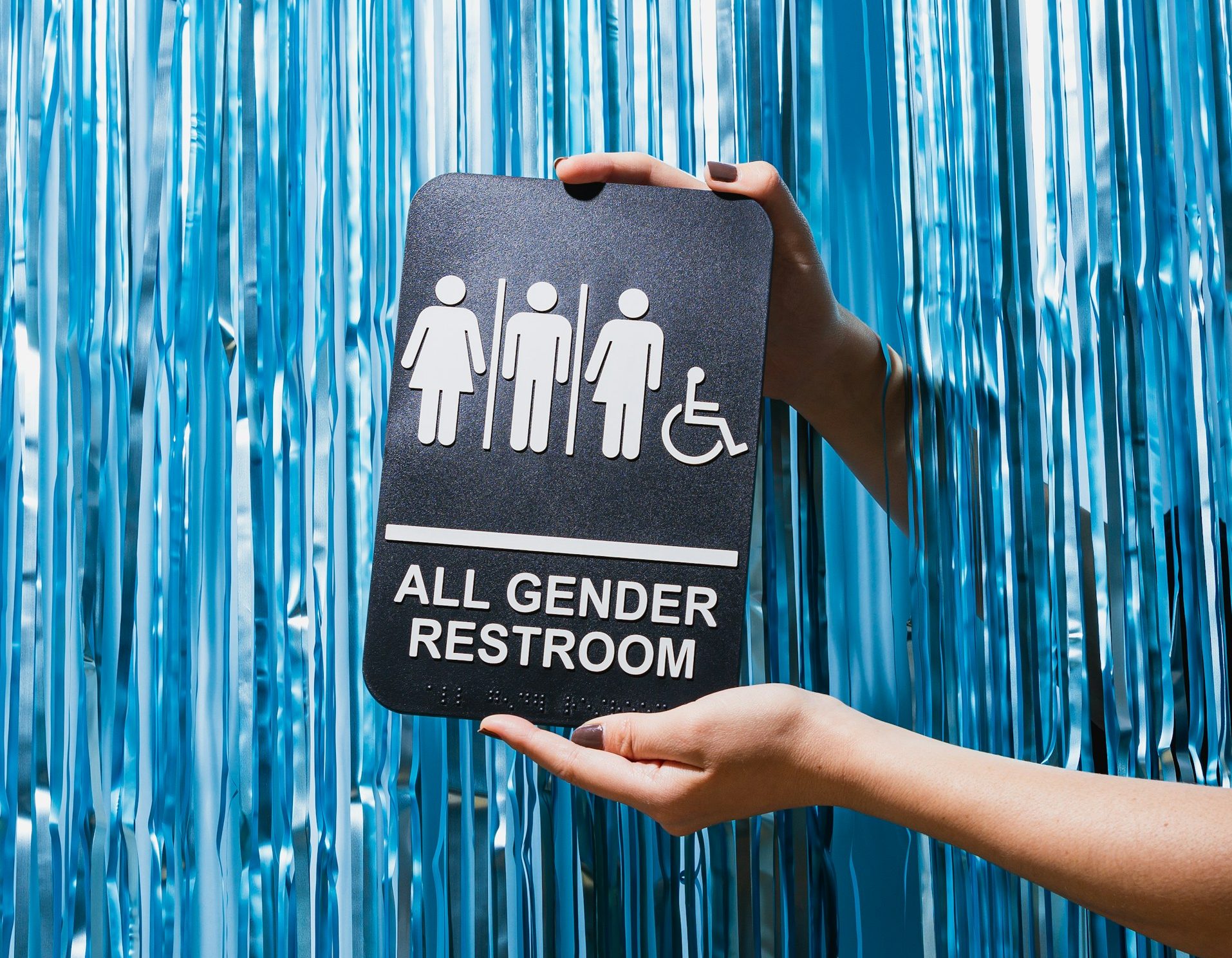
Comment Writer Lucas Simpson critically reflects on the new proposed legislation banning gender-neutral toilets in new public buildings
To the groans of many around the country, the government has recently announced new legislation to limit the availability of gender-neutral toilets in new public buildings. The new law prevents establishments from providing only gender-neutral facilities in new buildings, forcing them to offer sex-segregated toilets.
Tory ministers Kemi Badenoch and Lee Rowley have said that ‘it’s common sense’, and that ‘mixed sex toilet spaces […] deny privacy to both men and women’. This may come as a surprise to anyone that has ever been on a plane, or any gender-neutral toilet for that matter. What these ministers appear to not understand is that gender-neutral toilets are not new, and thus the problem of privacy is overblown. In fact it is something that most of us get on with without a fuss.
Gender-neutral toilets are not new, and thus the problem of privacy is overblown
I find that using a gender-neutral toilet is easy. Cubicles, sinks, hand dryers, simple. And that’s when it’s a large space! Normally, a gender-neutral toilet has just one or two actual toilets, and one or two sinks. Think: cafes, restaurants, etc. Not to mention disabled-accessible toilets that are unisex as a matter of course. It would be difficult for small businesses to provide sex-segregated facilities with limited space, and it might just be unrealistic for them to have more than one loo in the first place. So what could possibly be causing upset?
Badenoch said that gender-neutral toilets ‘deny privacy and dignity to both men and women’, but I feel my dignity is always in check as soon as I close the cubicle door, but as a cisgender man, it may seem easy for me to say this. However, it should be noted that, as reported by Harvard School of Public Health, transgender teenagers are at a heightened risk for sexual assault if they are not allowed to use facilities that are consistent with their gender identity. Therefore, the National Institutes of Health (USA) advise for gender-neutral toilets to be provided, arguing that they are safer for transgender people and make for a more inclusive environment, while generally being more convenient for everyone.
It is the case that gender-neutral facilities are more beneficial for everyone, regardless of gender identity. Yet, this seemingly knee-jerk, rash legislation must be coming from somewhere: I think I have a likely culprit.
New rules concerning the provision of NHS services to transgender patients, supported by the Tories, with similar legislation proposed by Labour Shadow Health Minister Wes Streeting, is segregating trans people in wards, treating them separately from cisgender patients. To me these new rules would be completely ridiculous, and offer similar problems as abolishing new gender-neutral toilets.
Segregating trans people in wards, treating them separately from cisgender patients
If we have a shortage of beds on the NHS, and limited funds after years of austerity, how do these politicians expect to be able to provide wards that segregate transgender people? It would be more realistic to keep things as they are and not create unnecessary issues for a strained public health system.
The legislation has unclear plans for provisions for transgender people, and oversimplifies the rigidity of the gender binary. So if you fall somewhere between the gender binary, what should you do? I find that all the fuss over this seemingly banal issue stems from the government effort to battle against transgender rights, and make it increasingly difficult for them to exist in public.
This campaign has been going on for a while, with many notable public figures, politicians, and organisations going anti-trans. Anti-trans campaigners have made a lot of noise online: but are they just a very vocal minority, or do they reflect the views of the average Briton? According to YouGov, the evidence shows that they don’t. They reported that as of 2022, despite declining support for trans rights, there remained a majority in support.
It is clear for me that the motivation behind proposed legislation such as banning gender neutral toilets is anti-trans ideology. The proposed policies benefit no-one. They are inconvenient for the public, businesses, and public services, and only serve to make the lives of trans and gender-non-conforming people more difficult.What we are seeing now with the trans ‘debate’ is only a continuation of old fashioned homophobia and transphobia. Yet, transgender and gender-non-conforming people have been around long before the current wave of hatred and resistance. They will be around long, long after.
For more Comment articles read here:

Comments